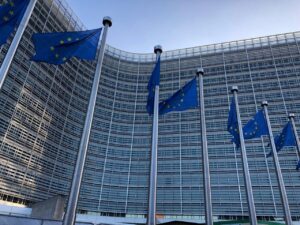The issue of liberalization of gas exports from Russia has returned. Did Gazprom send a signal to the European Commission to convince it to Nord Stream 2? – Wojciech Jakóbik, editor-in-chief of BiznesAlert.pl, wonders.
Endless discussion of liberalization
It appears from Gazprom documents that it is afraid of the Russian government’s decision to deprive it of a monopoly on gas exports. Such a solution would allow, for example, the construction of the Nord Stream 2 gas pipeline in line with European law, but would open the way to Gazprom’s rivals to customers interested in the Russian gas pipeline imports.
The Vedomosti business daily reported that the prospectus for new Eurobonds includes a record of the possibility of reorganizing the company. “Sketch of Russia’s energy development strategy until 2035 assumes maintaining a monopoly on gas exports from Russia, but there is no certainty that this right would not be revoked in the future, or our gas pipeline handling activities would not be reorganized” as it can be read in the document.
The daily notes that accordingly Gazprom for the first time ever has adopted the scenario of introducing the ownership unbundling in Russia. The informer of the newspaper admits that there is no decision on this matter. It should be recalled that the speculation about it has been going on for years, but until now has ended with maintaining the status quo. Especially Rosneft lobbies for the abolition of the Gazprom monopoly, which would like to send gas abroad. It even signed a non-binding memorandum with the British BP for delivery of up to 10 billion cubic meters annually for 16 years.
The Commission wants to subordinate Nord Stream 2 to the law
Had Gazprom lost its monopoly on the gas pipelines, the Nord Stream 2 project criticized in Europe could be subordinated to European law. The European Commission is currently preparing a revision of the gas directive, which is expected to subjugate all anti-monopoly import gas pipelines, forced by ownership unbundling. This means that one company cannot manage the gas pipeline and supply it with gas, and this would be the case with Nord Stream 2 if the Russians would not change the law.
The signal from Gazprom documents may or may not be a suggestion that the Russians are ready for such a change in order to alleviate the fears of those European Union countries who fear that Nord Stream 2 would not be subject to EU law and would threaten competition, market development and diversification in Central and Eastern Europe.
For the time being, beyond the provisions of the prospectus, there are no signs of readiness to liberalize exports through pipelines from Russia. The Federal Antimonopoly Service has not changed its position since March last year, which supports the separation of the operator from Gazprom, but admits that only the commission chaired by President Vladimir Putin can resolve the dispute.
Leonid Bershidsky suggested another solution in Bloomberg. In his opinion, Gazprom should sell the shares of Nord Stream 2 consortium to financial partners: Uniper, Wintershall, OMV, Engie and Shell. He does not mention, however, that the consortium with these companies was blocked by the Office for Competition and Consumer Protection as a threat to competition in Poland and in the region.
It should also be emphasized that the proposal to regulate the situation of Nord Stream 2 through the change of the gas directive may also include exclusions in favour of Gazprom, which would also relativize EU law to the benefit of this player. The regulation does not have to mean blockade of the project unless the Russians decide to reject EU regulations. Failure to comply with them was the reason for blocking the South Stream by the European Commission. However, Balkan countries lobbied for the project. Meanwhile, behind the scenes German companies are lobbying for Nord Stream 2.








